
"Let Love Be Your Energy" is a song by English singer Robbie Williams, released in April 2001 as the fourth single from his third studio album, Sing When You're Winning (2000). The song reached number 10 in the United Kingdom and entered the top 40 in several other countries. It was not released in Australia until 2002, when it peaked at number 53 on the ARIA Singles Chart. The music video for the single was presented in animation. It featured a cartoon facsimile of Williams always on the run in search of love. There is a second, raunchier version of the video depicting animated nudity and sex.

"Strange Currencies" is a song by American rock band R.E.M. It was included on their ninth studio album, Monster (1994), and was released as the album's third single on April 18, 1995. The single reached number nine on the UK Singles Chart and peaked at number 47 in the United States. Like "Everybody Hurts" on R.E.M.'s previous album, it has a time signature of 6
8.

"I Want That Man" is a song by American singer Deborah Harry. The song was released as the lead single from her third solo album, Def, Dumb & Blonde, and was the first record Harry released in which she reverted to using Deborah as her name instead of Debbie. It became a hit in several territories, reaching number two in Australia and on the US Billboard Modern Rock Tracks chart. The single also became a top-twenty hit in Ireland, New Zealand and the United Kingdom.

"My Place" is a song by American rapper Nelly featuring R&B singer Jaheim. It is the lead single from Nelly's fourth studio album, Suit (2004). The song is about Nelly inviting a girl over to his house, and the female backing vocals are provided by Kim Johnson. The track samples three songs: Labelle's "Isn't It a Shame", DeBarge's "I Like It", and Teddy Pendergrass's "Come Go with Me", so the respective songwriters are given credits.

"Walking in My Shoes" is a song by British electronic music band Depeche Mode. It was released on 26 April 1993 as the second single from their eighth studio album, Songs of Faith and Devotion (1993). The song reached number 14 on the UK Singles Chart and matched the success of the previous single "I Feel You" on the US Billboard Modern Rock Tracks chart, where it reached one. The B-side is "My Joy", the only exclusive B-side from the Songs of Faith and Devotion album, and is a rock track in the vein of "I Feel You".

"Your Woman" is a song by British one-man band White Town. It was released in January 1997 as the lead single from the album Women in Technology. It features a muted trumpet line taken from a 1932 recording of "My Woman" by Lew Stone and his Monseigneur Band. The song peaked at No. 1 on the UK Singles Chart. Outside the United Kingdom, the single reached No. 1 in Iceland, Israel and Spain, peaked within the top 10 on the charts of at least 12 countries, and reached No. 23 in the United States.
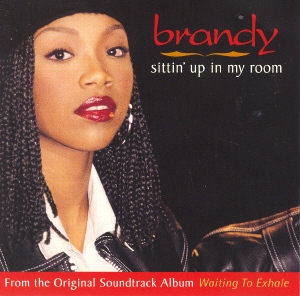
"Sittin' Up in My Room" is a song by American recording artist Brandy Norwood. It was written and produced by Babyface and recorded by Norwood for the soundtrack of the 1995 film Waiting to Exhale, starring Whitney Houston and Angela Bassett. The track was one out of five singles the album spawned and reached number two on the US Billboard Hot 100, becoming Norwood's most successful single on that particular chart up to that point. It is of note that the characteristic bass intro is a replica of the famous riff performed by bassist Larry Graham, of Sly and the Family Stone, on their hit "Thank You ", and its remix featuring LL Cool J contains a sample of "Haven't You Heard" by Patrice Rushen.
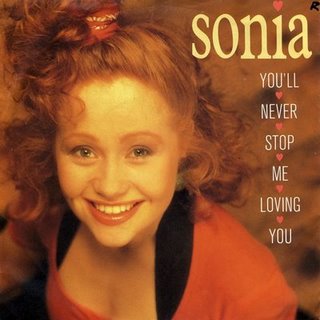
"You'll Never Stop Me Loving You" is a song by English pop singer Sonia. Written and produced by Stock, Aitken and Waterman, it was her debut single and the only number-one single in the UK Singles Chart for the Liverpudlian singer. The song was featured on Sonia's debut album, Everybody Knows (1990), and also reached number ten on the US Billboard Dance/Disco chart. The song helped cap a successful summer for Stock, Aitken and Waterman, becoming the sixth number-one single they had been involved in during 1989.
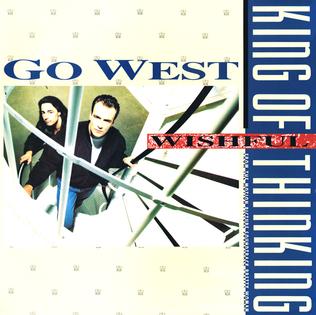
"King of Wishful Thinking" is a song by British pop duo Go West, written by Peter Cox, Richard Drummie and Martin Page. It was featured in the film Pretty Woman and appeared on its soundtrack. It was later featured on Go West's third studio album, Indian Summer, in 1992.

"My Love Is for Real" is a song by American singer Paula Abdul with backing vocals from Israeli singer Ofra Haza. It was released on May 30, 1995, as the first single from Abdul's third studio album, Head over Heels (1995). Intended as Abdul's comeback single, "My Love Is for Real" reached number one in Hungary and the top 20 in Australia, Canada, and New Zealand, but it stalled outside the top 20 in the United States, peaking at number 28 on the Billboard Hot 100, and failed to make a major impact in Europe.

Measure for Measure is the fourth studio album by Australian rock/synth-pop band Icehouse, released on 21 April 1986 in Australia by Regular Records and in the United States by Chrysalis Records. It was one of the first three albums to be recorded entirely digitally.

"She Sells Sanctuary" is a song by British rock band the Cult. It is from their second studio album, Love (1985), and was released as a single on 13 May 1985, peaking at number 15 on the UK Singles Chart in July of the same year. In July 2020, the British Phonographic Industry (BPI) awarded the song a gold certification for sales and streams of over 400,000. In January 1993, the song was re-released as "Sanctuary MCMXCIII" and experienced chart success once more, matching its original peak on the UK Singles Chart and entering the top 10 in New Zealand.
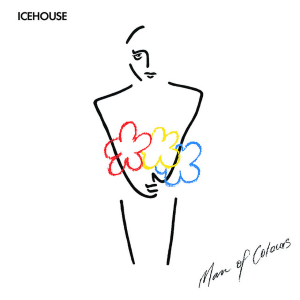
Man of Colours is the fifth studio album by Australian rock/synthpop band Icehouse, released locally on 21 September 1987 on Regular Records / Chrysalis Records.

"Gold" is a song by English new wave band Spandau Ballet, released on 5 August 1983 as the fourth single from their third album, True. The song was written by the band's guitarist/songwriter Gary Kemp as an homage to the film themes of composer John Barry that was especially influenced by his scores for the James Bond series. This was apparent to some music critics, but they were sharply divided in their reviews. Some appreciated the energy and drama behind it while others found it affected and overwrought. The song peaked at number 2 on the UK Singles Chart and made the top 10 in several other countries, but its number 29 showing in the US and the disappointing chart performances of the next two singles released there led to the band's decision to change record labels.

"1, 2, 3, 4 " is a song by American rapper Coolio. It was the third single released from his second studio album, Gangsta's Paradise (1995), in February 1996. Initially entitled "Sumpin' New", the song uses a sample from "Thighs High ", recorded in 1981 by American jazz trumpeter Tom Browne, and also includes a vocal sample from "Wikka Wrap" by the Evasions, from 1981. The song achieved success in several countries, including the United States, France, Iceland, and New Zealand, where it was a top-10 hit.

"Is There Any Love in Your Heart" is a song by American singer Lenny Kravitz and released on November 22, 1993, as the fourth single from his third studio album, Are You Gonna Go My Way (1993). Following its release, the song reached the top 50 in Australia and New Zealand and peaked at number 19 on the US Billboard Album Rock Tracks chart. The song was later included on the Japanese edition of Kravitz' 2000 compilation album, Greatest Hits. The music video was directed by Mark Romanek and features Canadian model Ève Salvail playing a vampire.

"Scooby Snacks" is a song by American band Fun Lovin' Criminals from their debut album, Come Find Yourself (1996). The song was written by the band and contains several sampled quotes from Quentin Tarantino films, so Tarantino is also credited as a writer. Most of the song is rapped, with the exception of the chorus, which is sung. The "Scooby Snacks" in the song is a reference to diazepam, also known as Valium.

"French Kissin" is a song by American singer Debbie Harry from her second solo studio album, Rockbird (1986). It was released on November 3, 1986, as the album's lead single. The song was written by Chuck Lorre, who would later create a series of successful sitcoms.
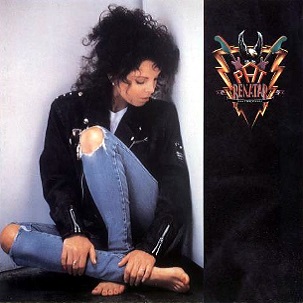
"Don't Walk Away" is a song by American singer Pat Benatar, which was released in 1988 as the second single from her seventh studio album Wide Awake in Dreamland. The song was written by Nick Gilder and Duane Hitchings, and produced by Peter Coleman and Neil Giraldo.

"Tell It to the Moon" is a song by American singer-songwriter Martha Davis, which was released in 1988 as the second single from her debut solo studio album Policy. The song was written by Diane Warren and produced by Richie Zito. "Tell It to the Moon" failed to chart in the US, but peaked at number 65 on the Australian Music Report chart.




















